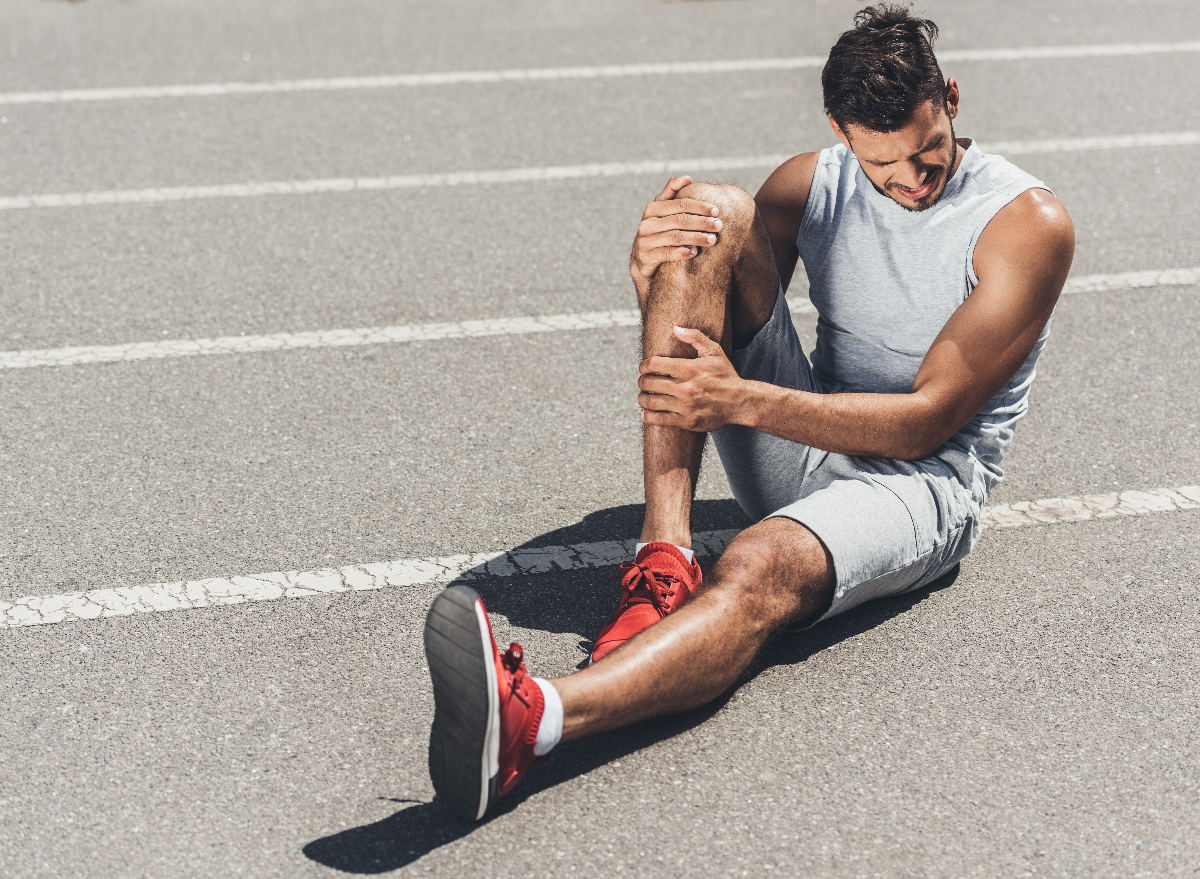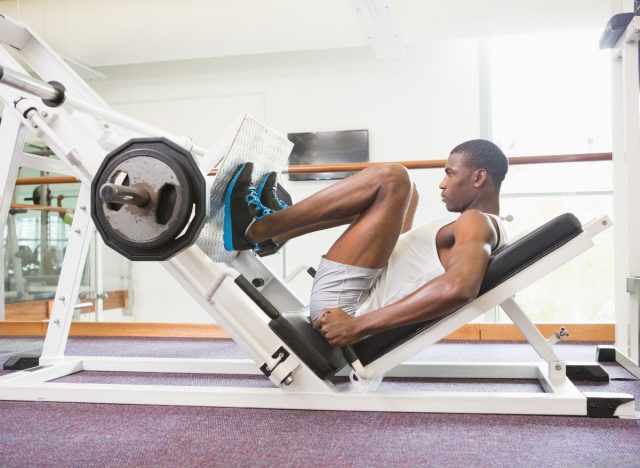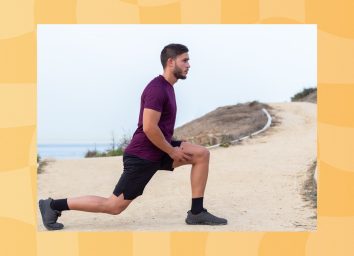5 Bad Exercise Habits That Are Destroying Your Leg Strength

If you prioritize exercise to maintain a fit, healthy body, chances are, you know the importance of leg day. After all, strong legs are essential to leading an independent, dynamic lifestyle. Research even shows that your neurological health is contingent on the signals your brain receives from the large muscles in your legs just as much as instructions sent from your brain to your muscles. It's crucial to know what to include in your workout routine on leg day, but it's just as important to know what not to do. We spoke to an expert who shares five of the worst exercise habits that destroy your leg strength.
Leg workouts are so important to include in your regular routine. They're a major part of an overall healthy physique, and they build strength and balance which will help you avoid falls and injuries. Sculpting stronger leg muscles will also give your endurance and power a boost, and gear you up for plenty of active outdoor fun this summer, such as biking, swimming, and hiking, according to Harvard Health Publishing.
But it's always a smart idea to review your workout practices to make sure they are helping—and not hurting—you or hindering your progress. To learn the bad exercise habits that destroy your leg strength, Eat This, Not That! spoke with Mike Bohl, MD, MPH, ALM, a member of our Medical Expert Board and a certified personal trainer and nutrition coach who has helped develop the Body Program at Ro. Dr. Bohl advises, "In general, exercise is healthy—but, just like everything else, it's important to do it in moderation and not push yourself too hard, otherwise you put yourself at risk of injury."
Here are some bad leg workout habits that you need to be aware of and quit ASAP. Keep reading to learn more, and next, don't miss 5 Exercise Habits That Are Destroying Your Body After 50.
1. You're overtraining.

It's common to be a bit over-ambitious at the gym when you have a goal or timeline in mind. But it's crucial to not overdo it. You will reach your end game with patience and consistency.
Dr. Bohl explains, "Some leg workouts—like squats and deadlifts—involve lifting very heavy weight, and it can be tempting to push yourself to see just how far you can go. However, overtraining is a very real phenomenon. If you lift too much weight too much, you can put a lot of stress on your muscles and bones, and this can cause muscle pain and weakness that will ultimately require taking time out of the gym to recover."
2. You're not giving your body enough time to rest.
Just as overtraining is bad for you, so is not giving your body sufficient recovery time between workouts.
"It's important to give your muscles enough time to rest—not only between sets and exercises but also between training days. If you're doing back-to-back-to-back leg workout days, you could be putting yourself at risk of injury," Dr. Bohl warns.
3. You're practicing poor posture.
This one's a biggie! Every single exercise you do requires using good posture.
Dr. Bohl explains, "In general, you should check the five kinetic chain checkpoints—your feet and ankles, knees, hips and pelvis, shoulders, and head. Specifically for the legs, you want your feet about shoulder-width apart with toes pointed forward, your knees in line with your second and third toes, and your pelvis in a neutral position. Common mistakes are pointing the toes in or out and letting the knees cave in or bow outward—try not to let these happen during a leg workout."
4. You're running without the right gear.

If you are a runner, wearing inappropriate shoes or running on a surface that's way too hard on your legs and feet can cause problems, such as shin splints or plantar fasciitis. Either one of these issues will cause you to take additional recovery time. Just think about it—an injury will cost you in the way of time away from the gym and less time spent on leg workouts.
5. You're not consuming the right foods.
Your body requires specific nutrients after you work out for muscle recovery and repair.
Dr. Bohl tells us, "If you're trying to lose weight and cutting a lot of calories, you're at risk of not eating everything you need. Make sure your meals are high in protein (particularly lean proteins like chicken, fish, and plant-based proteins), so your leg muscles are able to build back stronger."









